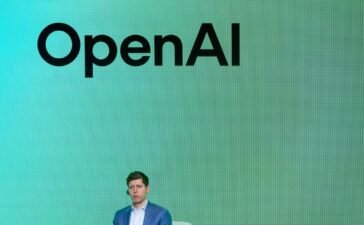Google is rolling out a new Gemini AI side panel in Gmail that can help you write emails and summarize email threads. The company is also adding the Gemini side panel to Docs, Sheets, Slides, and Drive. The launch of the new features comes shortly after Google announced them last month at its I/O developer conference, which heavily focused on new AI offerings from the tech giant.
With the new integration, you can use Gemini in Gmail to get help drafting an email or receive suggested responses to an email. Plus, you can ask questions and find specific information from emails within your inbox or from your Google Drive files.
Google notes that while Gemini in Gmail will provide prompts to help you get started with your queries, you can also ask your own questions. For instance, you can ask Gemini: “What was the PO number for my agency?” Or, you can ask: “How much did the company spend on the last marketing event.”
These features are only available to Google Workspace customers with a Gemini Business or Enterprise add-on, a Gemini Education or Education Premium add-on, or a Google One AI Premium subscription.

In Docs, the Gemini side panel can help you write and refine your content, summarize information, and help you brainstorm ideas. You can also create content based on other files. In Slides, Gemini can help you generate new slides and custom images, as well as summarize presentations.
The Gemini panel can also help you track and organize your data in Sheets. Plus, you can create tables, generate formulas, and get help with performing certain tasks. In Drive, the Gemini panel can summarize documents and get quick facts about a project.
As with the Gemini panel in Gmail, you will need to be a paid Gemini user to access the features in Docs, Slides, Sheets, and Drive.
Google is the latest tech giant to add generative AI features to its popular, everyday apps and services. Earlier this year, Meta brought its AI chatbot to Instagram and WhatsApp, while Apple recently announced that it’s bringing generative AI features to its apps and services, including Siri, Messages, Mail, and Notes.
The recent trend of shoving AI into everyday products may not be welcomed by everyone. While there was excitement around Apple’s upcoming AI features, there was pushback when Meta added its AI chatbot to search on Instagram. Up until now, users who aren’t interested in generative AI tools, like OpenAI’s ChatGPT, have been able to avoid them for the most part. But as tech giants continue to add AI to their everyday apps and services, generative AI will be harder to avoid.
You Might Also Like
Chinese marketplace DHgate becomes a top US app as trade war intensifies
The Trump trade war has gone viral on TikTok, pushing a Chinese e-commerce app, DHgate, to the top of the...
Hertz says customers’ personal data and driver’s licenses stolen in data breach
Car rental giant Hertz has begun notifying its customers of a data breach that included their personal information and driver’s...
OpenAI plans to phase out GPT-4.5, its largest-ever AI model, from its API
OpenAI said on Monday that it would soon wind down the availability of GPT-4.5, its largest-ever AI model, via its...
Google’s newest AI model is designed to help study dolphin ‘speech’
Google’s AI research lab, Google DeepMind, says that it has created an AI model that can help decipher dolphin vocalizations,...









